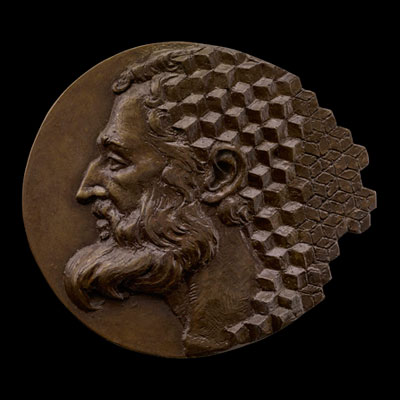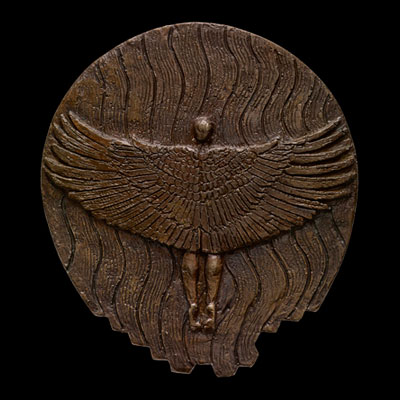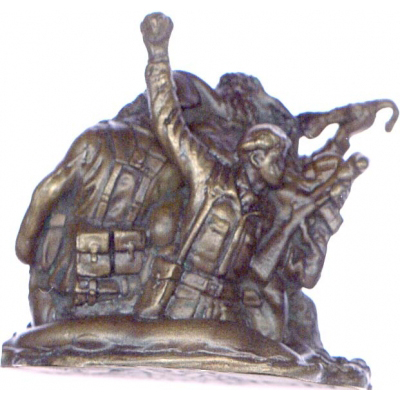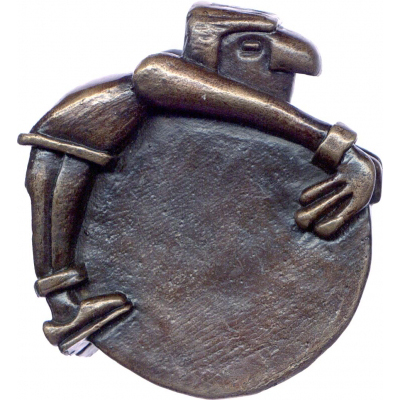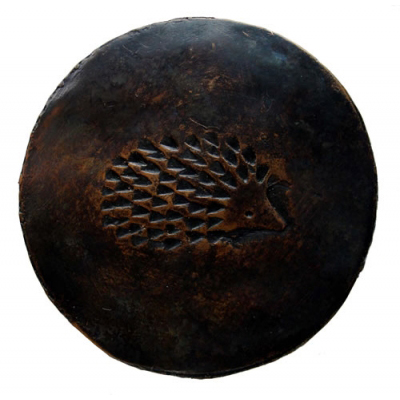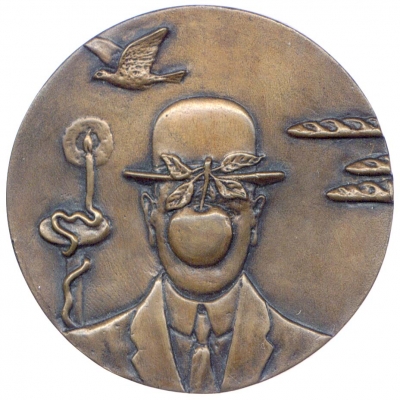Tristan MacDougall (b. 1978) studied sculpture at Winchester School of Art from 1997 to 2000, where he created modernist and conceptual sculpture and installations. In 2005, in order to pursue his love for figurative sculpture, he moved to Italy to study drawing and sculpture in the classical tradition at the Florence Academy of Art. He then went on to achieve an MA in history of art at the University of York (2010), winning a prize and distinction for his dissertation on the history of monumental sculpture at Hyde Park Corner. MacDougall works from his studio in Oundle, Northamptonshire, on portrait commissions and figurative sculpture. He is a regular exhibitor at FACE in London, the annual exhibition of the Society of Portrait Sculptors, and in 2015 he won their Sculpture Class first prize. At the centre of his work is a deep respect and love for the tradition of classical sculpture and he seeks to bring a fresh and contemporary voice to this ancient art form.
About his BAMS medal Daedalus, the artist writes: ‘Having produced a bas-relief of Icarus in 2013 and having created labyrinthine installations of trap doors in my days as a conceptual sculptor, the idea of creating a work dedicated to Daedalus has long appealed to me. Far less famous than his reckless son Icarus, I find the story of Daedalus tremendously compelling and exciting. Where Icarus is held up as a warning against soaring ambition, Daedalus is in a way his opposite. Daedalus is the great inventive genius of the mythological ancient world. His wild imagination created the wooden cow, allowing Pasiphae to procreate with the Cretan bull and thus give birth to the Minotaur, and his brilliant mind also invented the labyrinth, designed to contain this ferocious human-eating beast. He created the means for human flight, but, unlike Icarus, he was in full control of his dangerous invention and used his wings to escape to safety. In the modern world, where the extraordinary advances in science can appear both exciting and at times dangerous, I think that Daedalus is an ancient hero to be celebrated. He possesses the wild imagination, essential to thinking in ways that others cannot, but crucially he can also employ a cool rational mind, allowing him to be in control of his extraordinary inventions. The medal, with its tradition as an object of celebration, seemed the ideal space in which to celebrate an ancient hero with an urgent relevance to the modern age. The obverse shows him imaging the labyrinth as an interconnecting network of passageways and cuboid compartments, but this network can also act as a metaphor for the mind and imagination itself. These thoughts spill out the back of his head, as his inventions spill into and impact the physical world. The reverse shows him flying across the sea; the simple, uniform and symmetrical composition, looking down on Daedalus from above, is designed to suggest that he is calm and in control of his flight.’
